Adequately budgeting for reserves is often one of the more difficult tasks our Clients face. Reserve component projects are infrequent and often years down the line, making it very easy to just “deal with it later”. We have found those that are most successful with reserve budgeting goals typically follow some simple rules. We call it Goal Setting the ACE way.
1. Actionable
Is your goal possible within the constraints & limitations of very important but often overlooked factors related to statutory requirements and the governing documents? What may seem very “Reasonable” to the Board may very well be illegal or against the community governing documents.
Example
Your HOA Board has proposed that the best way to deal with the underfunded reserve account is to set up a $5,500 HOA Transfer Fee which will be charged to the Seller of any home that is sold in the community. This may sound reasonable and can certainly be well defined, but HOA Transfer Fees may have severe limitations on what they can cover or be outright illegal to impose in your jurisdiction. Consulting with qualified legal counsel before implementing these types of actions is strongly advised.
2. Comprehensive
Your goal should be clear and specific, otherwise you won't be able to focus your efforts or feel truly motivated to achieve it. When drafting your goal, try to answer the four "W" questions:
· What do we want to accomplish?
· Why is this goal important?
· Who is involved?
· When is this goal set to occur?
Example
Imagine that your Board would like to seek FHA approval status for your condominium community. A specific goal could be, “The Board would like to budget $55,000 to the reserve account for fiscal year 2018 year so that the Association’s reserve account balance and reserve account allocation rate complies with FHA condominium approval guidelines; thus, raising the ease of financing for the community membership”.
3. Equitable
Your goal should be reasonable and attainable to be successful. In other words, it should stretch your abilities but remain possible. When you set an achievable goal, you may be able to identify previously overlooked opportunities or resources that can bring you closer to it.
This often means that transitioning to a more stable financial track will take years of smaller goals being obtained. Severely underfunded reserve accounts usually develop after many years or decades; it’s usually not reasonable for the answers to come quick or easily.
*Reserve Analyst Tip*
Beware setting reserve budgeting goals that someone else has the utimate power over (e.g. a future Board). For example, “We’ll plan to start raising the reserve allocation rate in 3 years”. This simply puts the responsibility on someone else and is just another way to “deal with it later”. A future Board may have other ideas entirely or will be dealing with an economic downturn during which times raising the reserve allocation rate is extremely difficult. We always suggest doing something now that is within your control and authority.





